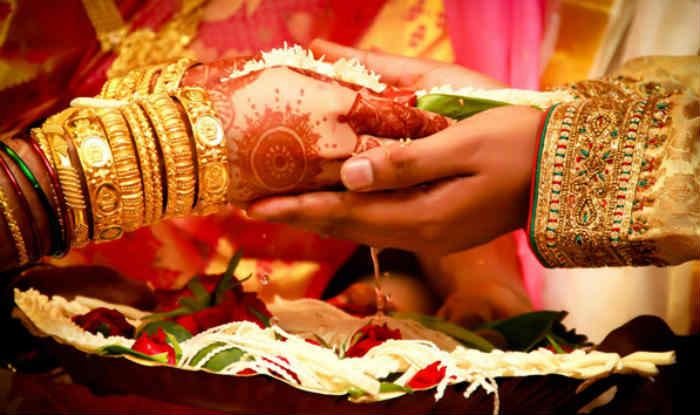After years of hard effort in the bringing up of this child, it is a huge emotional and physical sacrifice by the parents. Therefore, according to our karma theory, the parents deserve a lot of punya.
The translation of “kanya daan” as the “donation of a girl” is not just a misrepresentation but a highly objectionable one. It speaks of irreverential insensitivity towards others’ faith. Educated and arrogant youth in their over-anxious new found zeal to tom-tom their defence of feminism could very well miss the point. They seem to have thrown out the baby with the bathwater. Statements made without adequate research are always dangerous. One must dig deep enough to unearth the “why’s” and the “wherefores” of our deep rooted cultural traditions before renouncing them. Don’t believe blindly, but also don’t reject blindly.
Have you not heard of terms like “vidya daan”, “abhaya daan” or even “varadaan”? These are not donations. They mean a graceful “bestowing upon” through the largesse of the heart. They do not become commodities because they are being granted out of love, compassion and grace. Think. Rather than humiliating their beloved daughter, the parents worship her as “Devi” (goddess) before performing the kanya daan. Does one dare to “donate” a Devi? Recognising the divinity and purity of this female form they fully understand that the Lord gave her as a blessing and enjoined upon them the sacred duty of bringing her up with great love and care to take on larger roles in life.
Kanya Daan (the Christian wedding ritual of the giving away of the bride by the father, is a similar tradition) is a great sacrifice on the part of the parents who so lovingly brought her up. It is not a cheap “donation”. The parents fast all day and pray for mental purity before performing this holy ritual. It is a very emotionally searing farewell when the parents hand over the charge of their beautiful girl to her chosen partner for her own blossoming into full potential as a responsible citizen, wife and mother. They are thereby entrusting the vara (the best young man) to be her support and soulmate in life.
Another ritual performed along with this one is that of the brother pouring puffed rice into his sister’s palms, she then gives them to the groom who then offers them into the havan fire (symbolic of the lord). Thus the brother of the bride is telling his sister, “I love you so much dear sister that I would never let you go, but just as this rice, which is the only grain that needs to be transplanted for it to grow healthy and bear fruit, else it wilts and dies. You too can grow to your full potential, be a mother, and a wife, only with him. So, for your own growth and fulfilment I am letting you transplant yourself.” Then the girl gives the rice to the groom with the same beautiful message of why her parents are marrying her to him. The groom then offers it into the fire, praying to the lord for the strength to fulfil all the bride’s needs of love and care for which he has been entrusted.
How simply pure in emotional honesty are these? After years of hard effort in the bringing up of this child, it is a huge emotional and physical sacrifice by the parents. Therefore, according to our karma theory, the parents deserve a lot of punya (rewards of meritorious deeds). An auspicious karma brings auspicious results. So you hear the pundit calling out “come and take kanya daan”, not give kanya daan (come and take the punya of this selfless deed). This beautiful ritual has to be understood with all its emotional nuances, and sacrificial intents. Words like “commodity” and “donation” are rancorous and crude. Since the daughter is worshipped by the parents and close relatives before the ritual and venerated after it, isn’t it then rightly kanya maan?
Prarthna Saran, President, Chinmaya Mission Delhi, can be contacted at prarthnasaran@gmail.com

